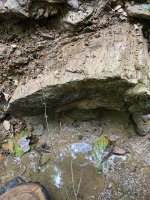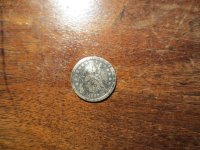danijoh
Newbie
- Jul 17, 2012
- 2
- 0
Folks, I am new here, so this post may be in the wrong thread, if so I apologize up front- this site is VAST! Ok, here's my question: as I said, I am totally new to this, am retired so am looking for something fun to do with my time. I live in NW Florida, the panhandle. I have been thinking of getting a metal detector for some time, and being retired now it seems like now or never! Which metal detector would be best for use at the beach and in salt water? I would love to get one that would work on regular ground also. Seems like I remember reading somewhere the coil is very important for detecting in the ocean. What else should I look for? I don't want to spend a (small) fortune, but I don't want a "toy" either. I know I'm asking a lot, but any help y'all could be would be appreciated! What other accessories will I need? Thanks in advance!
Amazon Forum Fav 👍
Upvote
0





